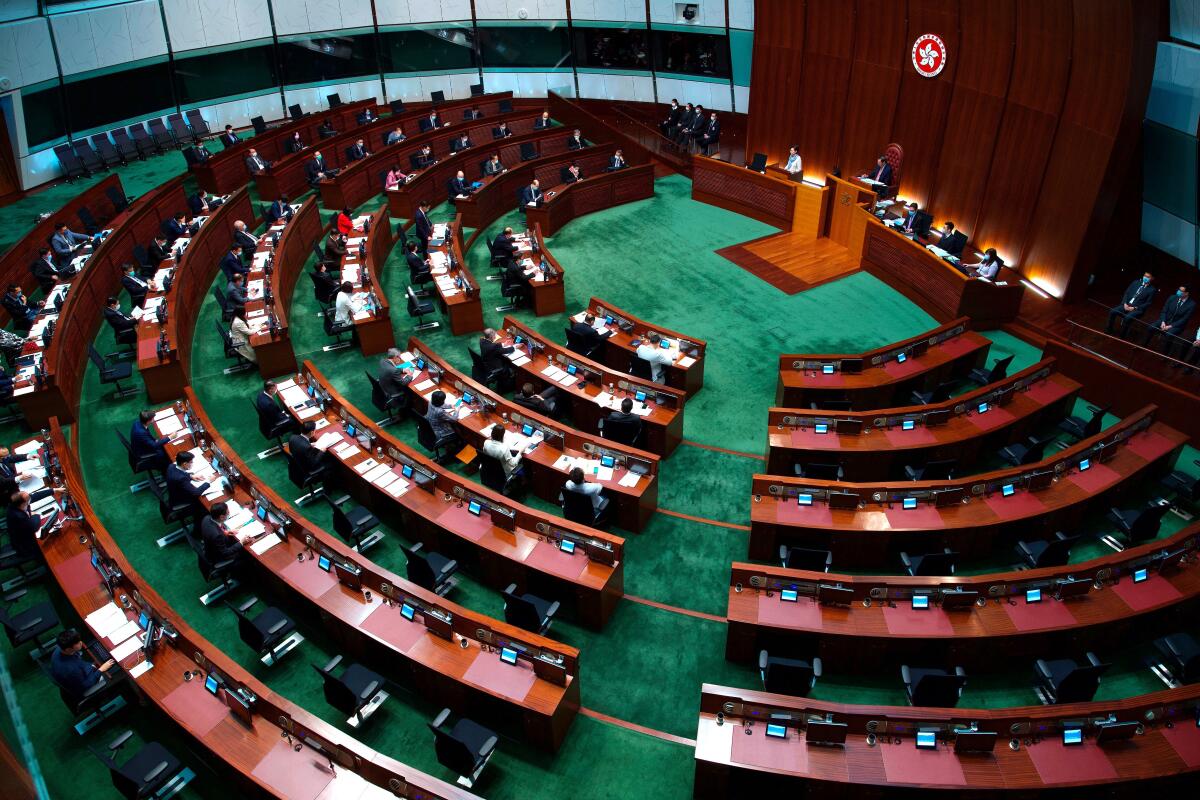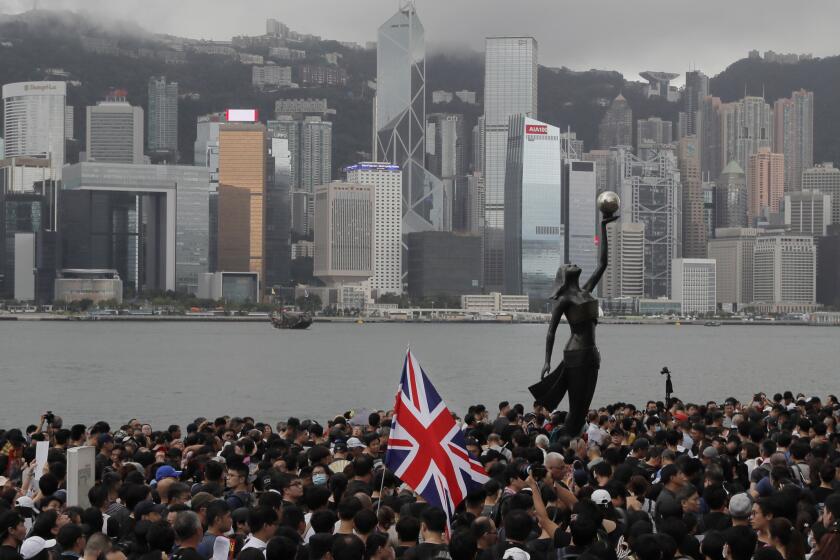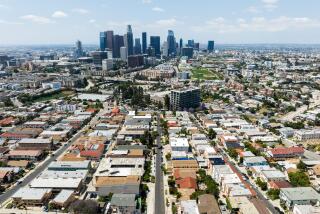In democratic setback, China sharply reduces elected seats in Hong Kong legislature

- Share via
HONG KONG — China has sharply reduced the number of directly elected seats in Hong Kong’s legislature in another setback for democracy in the city.
The changes were announced Tuesday after a two-day meeting of China’s top legislative body.
The Hong Kong legislature will be expanded to 90 seats, but only 20 will be elected by the public. Currently, half of the 70-seat legislature — 35 seats — is directly elected.
Beijing’s move is part of a two-phase effort to rein in political protest and opposition in Hong Kong, which has had a more liberal political system as part of the agreement China signed with Britain before the city reverted to Chinese control. Last year, China imposed a draconian national security law on Hong Kong, and is following up this year with a revamp of the electoral process.
The crackdown was spurred by months of pro-democracy protests in 2019 that brought hundreds of thousands of Hong Kongers out on the streets. Some of the demonstrations turned violent as the government resisted the movement’s demands.
“It’s a very sad day for Hong Kong. The election system is completely dismantled,” said former lawmaker and Democratic Party member Emily Lau.
When I was a young man in the 1970s, I joined hundreds of thousands of desperate Chinese to swim miles across the sea to Hong Kong, our beacon of freedom.
China’s top legislature, the Standing Committee of the National People’s Congress, amended Hong Kong’s constitution to pave the way for the changes. The Hong Kong government is now tasked with revising its electoral laws and holding an election.
In the current 70-member legislature, voters elect half the members, and the other half are chosen by constituencies representing various professions and interest groups. Many of the constituencies lean toward support of the mainland Chinese government, ensuring that wing a majority in the legislature.
The new body will have 20 elected members, 30 chosen by the constituencies and 40 by an election committee that also chooses the city’s leader. The committee, which will be expanded from 1,200 to 1,500 members, is dominated by supporters of the central government in Beijing.
Prospective candidates will undergo vetting by the national security police and a committee that oversees national security in the city.
Thousands of people are fleeing Hong Kong amid a crackdown by Beijing that prompted Britain to loosen visa rules for residents of its former colony.
A new separate body will also be established to review the qualifications of candidates for office in Hong Kong to ensure that the city is governed by “patriots,” in the language of the central government.
Hong Kong leader Carrie Lam said at a news conference Tuesday that the new committee to vet candidates will consist of a few government officials who are also trusted by the central government.
She dismissed concerns that the changes would affect plans for the city to achieve universal suffrage and allow residents to vote for their leader.
“I may as well say this very categorically, that the central government is very sincere to give Hong Kong people so-called more democracy — that is, universal suffrage,” Lam said.
Start your day right
Sign up for Essential California for the L.A. Times biggest news, features and recommendations in your inbox six days a week.
You may occasionally receive promotional content from the Los Angeles Times.
She blamed pro-democracy lawmakers for objecting in 2014 to a proposal that would have allowed residents to vote for the chief executive on the condition that Beijing vetted the candidates.
“As we move ahead with the current set of improvements in place, then in accordance with Hong Kong’s actual situation and in an orderly and gradual manner ... I’m quite certain that we will still have universal suffrage in selecting the chief executive,” she said.
Pro-democracy lawmakers in Hong Kong see the changes as part of a broader effort to keep them out of office.
“They are going to get rid of opposition voices because under this new system, which is so oppressive and restrictive, I don’t think any self-respecting individual will want to take part,” Lau said.
More to Read
Sign up for Essential California
The most important California stories and recommendations in your inbox every morning.
You may occasionally receive promotional content from the Los Angeles Times.











